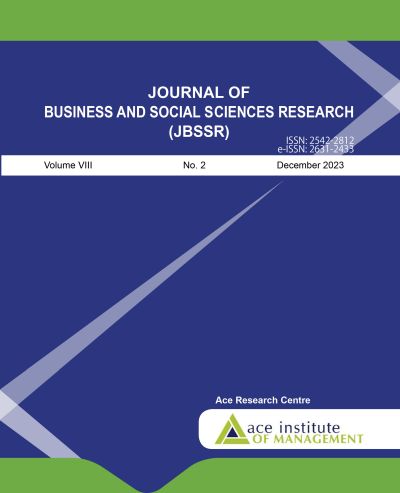ChatGPT Behaviours among Nepalese Users: An Application of Hedonic Motivation System Adoption Model
DOI:
https://doi.org/10.3126/jbssr.v8i2.62124Keywords:
behavioural intention, ChatGPT, hedonic, motivation system adoption mode, Nepali usersAbstract
Drawing from Hedonic Motivation System Adoption Model (HMSAM), this paper purposes to investigate factors influencing ChatGPT adoption behaviour among Nepalese users. The paper utilised a cross-sectional survey research design to gather data from 350 users of ChatGPT in Nepal. The researchers employed purposive sampling to select respondents for the paper. To test hypotheses, this paper applied the Partial Least Squares Structural Equation Modelling (PLS-SEM) technique. This paper found that Joy and Perceived Usefulness (PU) have a significant influence on Behaviour Intention (BI). Perceived Ease of Use (PEOU) on Confirmation (CON) and Joy. Likewise, PEOU has a significant influence on Control (CON) and Joy. However, CON, curiosity (CU) and Joy do not significantly influence Immersion (IMM). CU does not influence BI and IMM, and PEOU does not influence CU and Perceived Usefulness (PU) among Nepalese ChatGPT users. This paper offers a significant outlook for the developers of ChatGPT to focus on the ease of using and joyfulness of using ChatGPT.
Downloads
Downloads
Published
How to Cite
Issue
Section
License
© JBSSR/AIM
Authors are required to transfer their Copyright to the Journal of Business and Social Sciences Research.




